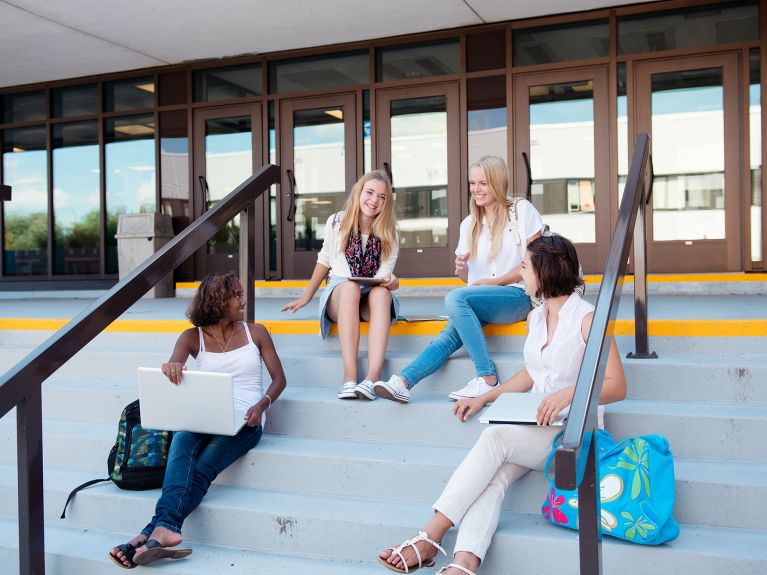Tips for a school exchange with Germany
Organising international school exchanges: information and contact details of schools can be found here. A teacher gives some useful tips.

Commitment, good communication and a bit of luck – these are the main ingredients for a successful school exchange. “It does involve quite a bit of work“, says Beate Jacob, a teacher at the Justin-Wagner-Schule near Darmstadt, “but it’s also a very enriching experience”. She has already organised a number of exchanges with Poland and the UK. “Sometimes these reciprocal visits lead to lasting friendships.”
Dieses YouTube-Video kann in einem neuen Tab abgespielt werden
YouTube öffnenThird party content
We use YouTube to embed content that may collect data about your activity. Please review the details and accept the service to see this content.
Open consent formFinding a partner school
The most important thing is to find a partner school. This can be done by accessing networks, which have useful contact details and information for teachers organising school exchanges: the Pädagogischer Austauschdienst (PAD) provides information about international school exchanges. The Partnerschulnetz in the “Schools: Partners for the Future” (PASCH) initiative helps establish contact between schools. What is more, foreign and German schools can also apply for subsidies here. “After all, the trips need to be affordable for everyone”, says Jacob. Teachers can also organise a school exchange via the EU’s Erasmus programme.
Organisers can establish initial ties at contact seminars. “Schools and regions present themselves there and people discuss possible exchanges. That is important, because everything happens as a result of personal contacts”, explains Jacob.
Finding suitable host families
The best way for organisers to choose host families is also during personal discussions, as it is important for families to be willing to take in a child from abroad. Who will be hosted by which family? Questionnaires are used to identify any hobbies and other interests that the pupils may have in common.
“This is something that causes problems time and again”, remarks the experienced teacher, adding that most misunderstandings can be resolved by openly discussing any issues. “Sometimes, joint activities like cooking or playing a game can also help break the ice.”
She goes on to explain that pupils should also enjoy a cultural programme that includes excursions during their stay abroad. “However, please don’t include too many activities, as the youngsters need to be given sufficient time to get to know one another and share views and thoughts”, is her advice.
You would like to receive regular information about Germany? Subscribe here:


